Helpful Notes!
The letters “ee” is pronounced like “ee” in the word (meet).
The letters “ae” is pronounced like “a” in the word (game).
The letters “uu” is pronounced like “oo” in the word (moon).
The letters “oo” is pronounced like “oa” in the word (goal).
The letter “e” is pronounced like “e” in the word (get).
The letter “o” is pronounced like “o” in the word (got).
The letter “u” is pronounced like “uu” but short.
The letter “a” is pronounced like “a” in the word (gas), and if it’s “aa” we pronounce it long.
If the consonant is written in printed (capital) letters in the Arabic transliteration , it needs to be pronounced more toughly.
(See examples using the link bellow)
If the letter “a” is preceded or followed by a tough consonant it needs to be pronounced like “u” in “sun” and “aa” is to make it long.
If we have double consonant, we need a little stop in between to start next syllable by the same sound.
Adj. means we use it as an adjective form for masculine, feminine and plural (-,a,een).
Verbs in (imperative/order) form are translated to the three forms masculine, feminine and plural (-,i,u).
If the same word in English is used as a noun and verb, it’s written with “the” in the translation like this:
If the letter “a” is preceded or followed by a tough consonant it needs to be pronounced like “u” in “sun” and “aa” is to make it long.
If we have double consonant, we need a little stop in between to start next syllable by the same sound.
Adj. means we use it as an adjective form for masculine, feminine and plural (-,a,een).
Verbs in (imperative/order) form are translated to the three forms masculine, feminine and plural (-,i,u).
If the same word in English is used as a noun and verb, it’s written with “the” in the translation like this:
work = sho3’l (the work), as sign for telling that it is a noun not a verb.
If the verb is in participle, it’s used as an adjective.
Some of the verbs have the present continues or present perfect form as an adjective, those will be written with (adj.) beside.
Things will be written with the related meanings. For example when you search for the word as , you will find:
If the verb is in participle, it’s used as an adjective.
Some of the verbs have the present continues or present perfect form as an adjective, those will be written with (adj.) beside.
Things will be written with the related meanings. For example when you search for the word as , you will find:
as, as far as, as for ….etc.
You need to search with the past form of the verb when you need to have the past form as a result.
You need to search with the plural form of the noun when you need to have the plural form as a result.
You need to search for the passive form with the word “become” before like “become adjusted”
When “sh” is written “s-h” is to pronounce like “s” then “h” not “sh”.
When “sh” is written “s-h” is to pronounce like “s” then “h” not “sh”.

